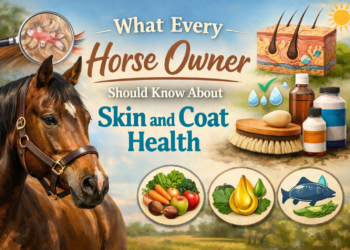Tortoises are herbivores and require a diet that is rich in fiber, vitamins, and minerals. As a result, many tortoise owners are always looking for new foods to add to their pet’s diet. Aloe vera is a succulent plant that is known for its medicinal properties, but can it be fed to tortoises?
The short answer is yes, tortoises can eat aloe vera, but only in moderation. Aloe vera is safe for tortoises to consume, but it should not be a staple food in their diet. Aloe vera contains aloin, a compound that can cause diarrhea in large quantities. Therefore, it is recommended to feed aloe vera to tortoises sparingly and in small amounts.
It is important to note that not all species of tortoises have the same dietary requirements. Some tortoise species are more sensitive to certain foods than others. Therefore, it is always best to consult with a veterinarian or a tortoise expert before introducing any new food to your pet’s diet.

Tortoise Dietary Basics
As tortoise owners, we want to make sure that our pets are getting the best nutrition possible. A healthy diet is essential to keep our tortoises happy and thriving. Here are some basic guidelines to keep in mind when it comes to tortoise nutrition:
Variety is Key
Tortoises are herbivores and require a varied diet that includes a mix of leafy greens, vegetables, and fruits. Providing a variety of foods ensures that they are getting a range of nutrients and vitamins.
Calcium is Crucial
Calcium is an essential nutrient for tortoises, as it helps to keep their shells strong and healthy. Calcium can be found in a variety of foods, including leafy greens, vegetables, and calcium supplements.
Avoid High-Fat Foods
Tortoises have a slow metabolism and are prone to obesity. It’s important to avoid feeding them high-fat foods, such as cheese or fatty meats, as this can lead to health problems.
Offer Fresh Water and Moist Food
Tortoises require fresh water at all times, as well as moist food to help with digestion. Make sure to provide a shallow dish of water and mist their food with water to keep it moist.
By following these basic guidelines, we can ensure that our tortoises are getting the nutrition they need to live a healthy and happy life.
Aloe Vera: A Brief Overview
Aloe vera is a succulent plant species that belongs to the genus Aloe. It is native to the Arabian Peninsula, but it is now grown worldwide for its medicinal and ornamental purposes. The plant has thick, fleshy leaves that contain a clear gel-like substance that is widely used in various health and beauty products.
Aloe vera has been used for centuries for its therapeutic properties. It contains over 75 active compounds, including vitamins, minerals, amino acids, and antioxidants. These compounds are believed to have anti-inflammatory, antibacterial, and antifungal properties that can help to improve skin health, boost immunity, and promote digestive health.
Aloe vera is also used in traditional medicine to treat a wide range of ailments, including sunburn, acne, constipation, and diabetes. However, it is important to note that many of these claims are not supported by scientific evidence, and more research is needed to fully understand the potential health benefits of aloe vera.
Overall, aloe vera is a versatile plant that has many potential health benefits. While it is generally considered safe for most people, it is important to consult with a healthcare professional before using aloe vera for medicinal purposes.

Potential Health Impacts of Aloe Vera on Tortoises
Digestive Health
Aloe vera contains a compound called aloin, which can be toxic to tortoises if ingested in large quantities. Aloin can cause diarrhea, vomiting, and dehydration in tortoises. Therefore, it is important to limit the amount of aloe vera that a tortoise consumes.
Skin Health
Aloe vera is often used to treat skin conditions in humans, such as sunburns and minor burns. However, it is not clear whether aloe vera has the same benefits for tortoises. In fact, applying aloe vera to a tortoise’s skin may cause irritation or an allergic reaction.
Overall Wellbeing
While aloe vera may have some health benefits for humans, there is not enough research to determine whether it has any positive effects on tortoises. Therefore, we recommend that tortoise owners avoid feeding aloe vera to their pets, as it may cause digestive issues and skin irritation.
In conclusion, while aloe vera is a popular plant with many potential health benefits for humans, it is not clear whether it is safe or beneficial for tortoises. If you are unsure about whether a certain food or plant is safe for your pet, it is always best to consult with a veterinarian who specializes in reptile care.
Tortoise Safe Alternatives to Aloe Vera
When it comes to feeding tortoises, it’s important to choose safe and nutritious foods. While aloe vera has some potential health benefits, it’s not recommended for tortoises due to its laxative effects and potential toxicity. However, there are many other safe and healthy foods that your tortoise can enjoy.
Here are some tortoise-safe alternatives to aloe vera:
- Leafy Greens: Tortoises love leafy greens like kale, collard greens, and dandelion greens. These are packed with vitamins and minerals that are essential for your tortoise’s health.
- Hay: Hay is an excellent source of fiber for tortoises. Timothy hay, orchard grass hay, and alfalfa hay are all good options.
- Vegetables: Vegetables like carrots, squash, and green beans are all safe and nutritious options for your tortoise. Just be sure to chop them into small pieces to make them easier to eat.
- Fruits: Fruits like strawberries, raspberries, and melons can be given to your tortoise in small amounts as a treat. Just be sure to remove any seeds or pits first.
- Commercial Tortoise Food: There are many commercial tortoise foods available that are formulated to provide all of the nutrients your tortoise needs. Look for a high-quality food that contains a variety of ingredients.
Remember, it’s important to provide your tortoise with a varied diet to ensure they’re getting all of the nutrients they need. If you’re unsure about whether a particular food is safe for your tortoise, it’s always best to err on the side of caution and avoid it.
Conclusion
In conclusion, while aloe vera may have some benefits for humans, it is not recommended as a regular part of a tortoise’s diet.
Based on our research, aloe vera contains compounds that can be harmful to tortoises, especially in large quantities. These compounds can cause digestive issues, dehydration, and even liver damage.
While some tortoise owners may have reported feeding their pets small amounts of aloe vera with no ill effects, it is important to remember that every tortoise is different. What works for one tortoise may not work for another.
Therefore, we recommend erring on the side of caution and avoiding feeding aloe vera to your tortoise altogether. Instead, stick to a balanced diet of fresh greens, vegetables, and fruits, and consult with a veterinarian if you have any concerns about your tortoise’s health.
Overall, the health and well-being of your tortoise should always be your top priority, and feeding them aloe vera is not worth the potential risks.

Frequently Asked Questions
Are aloe vera plants poisonous to tortoises?
Yes, aloe vera plants are toxic to tortoises. They can cause gastrointestinal upset and potentially lead to more serious health issues. It is best to avoid feeding aloe vera to your tortoise.
What plants should tortoises avoid?
Tortoises should avoid plants that are toxic or potentially harmful to their health. Some examples include avocado, rhubarb, and tomato plants. It is important to research any plants before feeding them to your tortoise.
What are some safe plants for tortoises to eat?
Tortoises can safely eat a variety of plants, including dandelion greens, collard greens, and hibiscus flowers. It is important to provide a varied diet to ensure your tortoise is receiving all necessary nutrients.
Can Sulcata tortoises safely eat aloe vera?
No, Sulcata tortoises should not eat aloe vera. While some tortoises may be able to tolerate small amounts of aloe vera, it is not recommended and can potentially cause health issues.
Is it safe for Russian tortoises to eat aloe vera?
No, Russian tortoises should not eat aloe vera. It is best to avoid feeding any tortoise aloe vera to prevent potential health issues.
Can tortoises eat cactus?
Some species of tortoises, such as desert tortoises, can safely eat cactus. However, it is important to remove any spines and only offer cactus as a small part of a varied diet. Other species of tortoises may not be able to tolerate cactus and should not be fed it.











